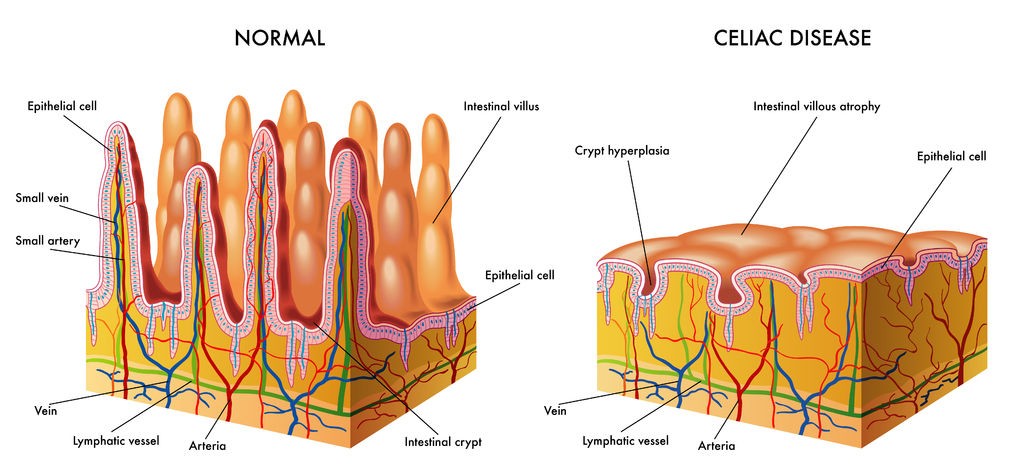If you’re a woman, the danger of Celiac disease usually is higher than it is for a guy, especially if you have received the at-risk gene from your father instead of your mother. If you’re a male, your risk of celiac disease could be higher than a woman in the case you don’t have the traditional genetic patterns.
Lots of people have other diseases due to gluten sensitivity. Celiac disease isn’t a food allergy and isn’t the same as a wheat allergy. It’s actually an autoimmune disease. Celiac disease is brought on by an abnormal immune reaction to a dietary protein referred to as gluten, which causes inflammation and damage to the small intestine. Different autoimmune diseases cause various forms of damage within the body. Celiac disease and gluten sensitivity may be an undiagnosed source of bloating, food intolerance, and a range of different symptoms.
Unfortunately, a lot of people who suffer from celiac disease don’t have any signs. It should not be confused with gluten intolerance. If you suspect you’ve got celiac disease, speak with your physician about getting tested. Celiac Disease is a disorder which could be tough to diagnose because of the many unique symptoms it may produce. It affects each person differently. For ladies, untreated celiac disease can cause infertility. Refractory celiac disease can be rather severe, and there is now no proven therapy.

The root cause of celiac disease seems to be based, in part, on an individual’s genetic makeup. Diagnosing celiac disease isn’t always a one-step practice. Identifying celiac disease is essential since it’s an autoimmune disease, and it might set you up for danger of long-term complications if not correctly addressed.
In the event the tests indicate possible celiac disease, your physician may recommend you have a bowel biopsy to verify the diagnosis. All beneficial and indeterminate celiac disease test are usually followed by an intestinal biopsy. The next step is to get a simple blood test. There is an assortment of blood tests accessible to screen for celiac sprue. Additional blood tests to check for nutritional issues, which can happen in people with celiac disease, might also be recommended.
In case the test comes back negative, try out a gluten-free diet for a week to see whether you genuinely feel better. The SELFCheck test gives an early detection of gluten intolerance. If it shows that celiac disease is present, a gluten-free diet will be prescribed. In most instances, multiple tests need to determine if someone has Celiac Disease accurately. Thus, the celiac disease gene tests are primarily helpful to rule out celiac disease.
If you’ve got celiac disease, your health care provider may suggest that you get a distinctive X-ray, referred to as a bone density test, to check whether your bones are affected. You may find out more about celiac disease and get practical advice about changing to a gluten-free diet by contacting a local celiac disease support group.